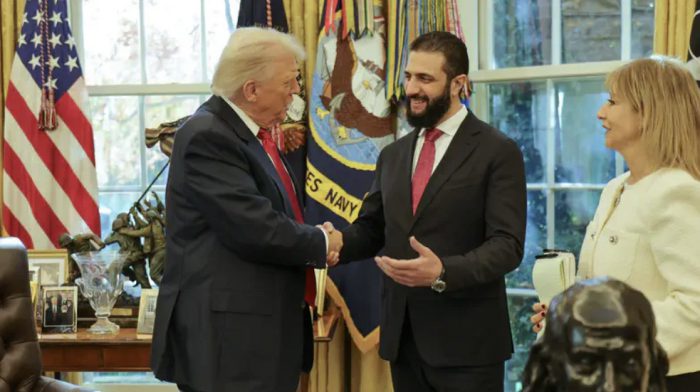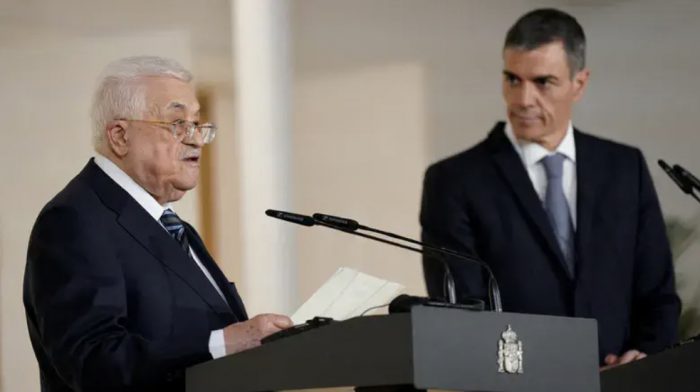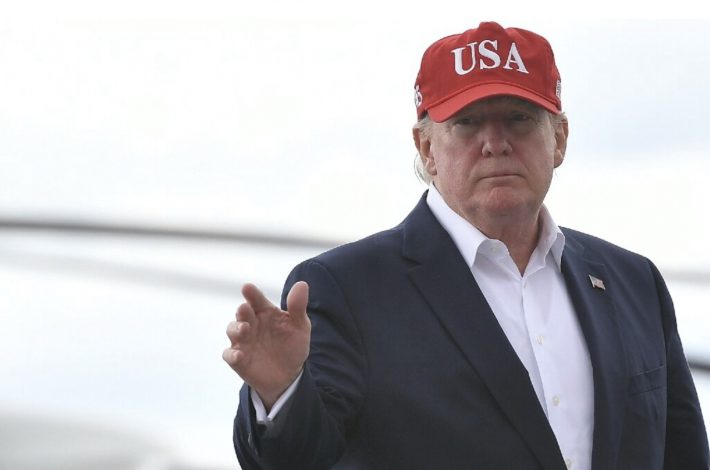Syrian President Ahmed al-Sharaa accuses Israel of airstrikes and treaty violations even as quiet Trump-brokered peace talks advance behind the scenes.
In a remarkable mix of accusation and contradiction, Syrian President Ahmed al-Sharaa lashed out at Israel in an interview with the Washington Post on Tuesday — even as he confirmed that his government is engaged in direct, U.S.-backed negotiations with Jerusalem.
Al-Sharaa, the former rebel leader who toppled the Assad regime in December, accused Israel of “violating a 50-year disengagement agreement” and expanding its security presence deep inside Syrian territory. “When the Assad regime fell, Israel revoked the agreement and occupied new territory,” he claimed, adding that Israel has conducted over 1,000 airstrikes since his takeover, including alleged strikes on the Presidential Palace and the Syrian Ministry of Defense.
Despite the bluster, analysts note that the Israeli strikes — precision attacks on Iranian Quds Force depots and Hezbollah outposts — have been central in preventing Iran’s re-entrenchment in Syria following Assad’s collapse. Al-Sharaa’s insistence that “Syria expelled Iranian militias and Hezbollah” has been met with deep skepticism across Western intelligence agencies.
In reality, Israel’s operations in Syria are part of its long-standing campaign to prevent Tehran’s military buildup on its northern border, a policy that has dismantled hundreds of weapons convoys and missile sites used to arm Hezbollah and other Iranian proxies.
Al-Sharaa confirmed that negotiations between Syria and Israel — facilitated by the United States and regional partners — are underway. “We have gone a good distance on the way to reach an agreement,” he told the Post. He further revealed that President Donald Trump supports the talks and is personally pushing for a breakthrough, suggesting that a security arrangement could be reached “within days.”
However, the Syrian leader ruled out any demilitarized zone south of Damascus, saying, “This is Syrian territory, and Syria should have the freedom to deal with it.” Israeli officials privately interpret this as an attempt to preserve military leverage while seeking international legitimacy through Washington.
When pressed in a Fox News interview about Syria potentially joining the Abraham Accords, al-Sharaa hesitated, refusing to acknowledge Israel’s right to exist. “We are not going to enter into direct negotiations right now,” he said, though he hinted that a U.S.-mediated framework could pave the way for future agreements.
Observers note the irony: while al-Sharaa blames Israel for “expansionism,” it is Israel’s deterrence and U.S. diplomacy that have stabilized the region after the fall of the Iran-backed Assad regime.
For Jerusalem, the message is clear — Israel’s vigilance forced Iran out, and its strength now makes peace possible. The rest, as one Israeli diplomat quipped, “is noise from Damascus.”





